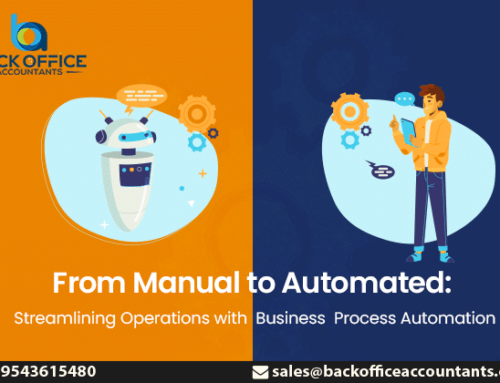Businesses seeking to improve efficiency, financial stability, and streamline operations are increasingly outsourcing and accounting and bookkeeping tasks. However, navigating this shift requires a keen awareness of key details that can determine success or failure. In this in-depth tutorial, we examine five essential topics that require consideration when thinking about outsourcing your bookkeeping.
1. Data Security and Confidentiality
Because financial information is sensitive, data security and confidentiality are critical when outsourcing accounting services. It is imperative to take strict precautions to safeguard financial data from unauthorized access, breaches, or abuse when entrusting it to an external party. Strict access restrictions, encrypted data transmission routes, and encryption techniques are all necessary for establishing strong data security measures.
To secure data and privacy, adherence to industry standards and laws is essential. The outsourcing contract should include confidentiality agreements and non-disclosure provisions that clearly define the outsourced team’s responsibilities concerning data management and confidentiality.
2. Expertise and Experience
It is important to choose a partner with the appropriate knowledge and experience. Consider their experience, expertise in the field, and level of familiarity with the accounting program you use. A knowledgeable team may contribute to strategic financial planning and analysis by providing insights and solutions beyond standard bookkeeping.
Think about how well they can adjust to the particular requirements of your company and whether they can manage complexity such as foreign tax regulations or specific reporting requirements. Testimonials from previous clients, case studies, and certificates are all important ways to determine how competent and dependable they will be in managing your bookkeeping needs.
3. Technology and Tools
The efficacy and efficiency of outsourced bookkeeping services are greatly impacted by the technology and instruments that an outsourced accounting company uses. The best outsourcing partners use technology-driven solutions, automation tools, and sophisticated accounting software to improve accuracy and expedite work. Modern accounting software makes data administration easier, makes complicated computations simpler, and speeds up reporting.
Integration with other systems encourages a more efficient workflow, guarantees seamless data flow, and lowers human mistakes. Automation technologies are essential for operations like financial reporting, reconciliation, and invoice processing. Automated payment reminders or irregularity warnings enable proactive management and prompt action.
4. Risk Management and Contingency Plans
Strong risk management plans and backup plans are essential defenses against unanticipated difficulties or interruptions that can affect financial operations in the field of outsourced accounting.
A thorough analysis of possible risks to the outsourcing agreement is the first step towards effective risk management. This entails determining the different risks that might impact the accounting operations, such as data breaches, service outages, problems with compliance, or adjustments to regulatory frameworks.
Plans for contingencies are organized reactions intended to lessen the effects of certain recognized hazards. They specify what has to be done in advance in case a danger manifests itself. This might include backup plans, different service providers, or data recovery techniques, for example.
To make sure these backup plans work, they must be developed and tested. Frequent exercises or simulations assist in verifying the readiness of the plans and improving them in light of acquired knowledge.
5. Conflict Resolution Mechanisms
Outsourced accounting services collaborations require conflict resolution techniques since they offer a formal framework for resolving conflicts or difficulties that may occur throughout the cooperation. These procedures lay forth a precise plan for resolving disputes, reducing interruptions, and maintaining the integrity of the collaboration.
Typically, the procedure entails following predetermined stages to recognize, discuss, and resolve problems. This might involve established methods for voicing concerns, escalation mechanisms, and designated points of contact. Clear lines of communication are essential because they enable everyone to openly express their opinions and complaints.
The essential elements described in this thorough guide highlight the important factors to take into account when firms use outsourcing to improve efficiency and optimize financial processes. We have thoroughly and precisely examined five essential aspects that require careful consideration when thinking about outsourcing accounting services.
At Back Office Accountants, we make sure that our customers’ accounting and bookkeeping outsourcing initiatives are effectively integrated, safe, and efficient because we live up to the precise principles that are explained in this lesson.
Experience and expertise are not simply qualities; they are what define our team, where strategic insights, flexibility in meeting different needs, and an unmatched grasp of accounting software come together to enhance our customers’ financial plans.







